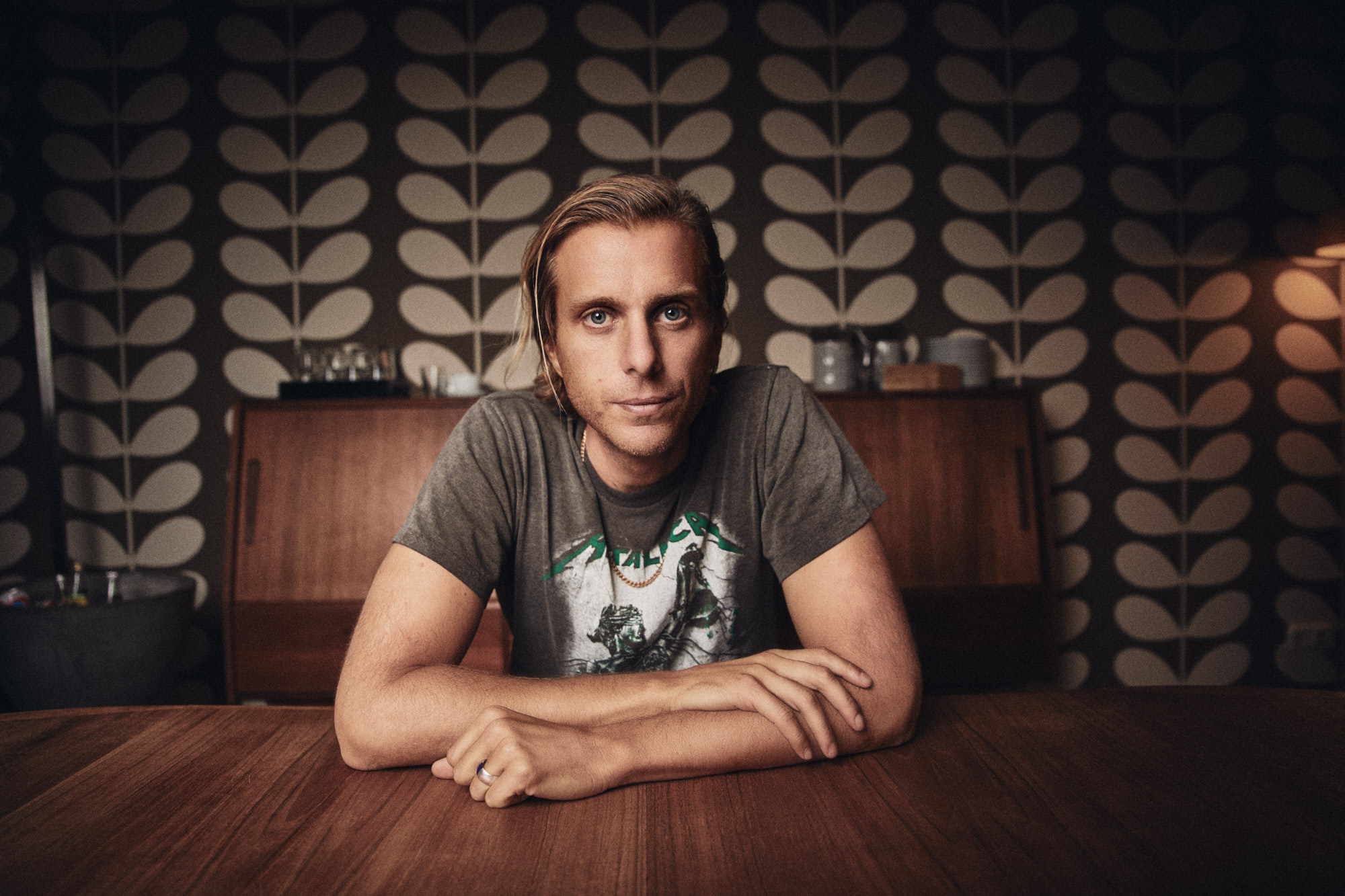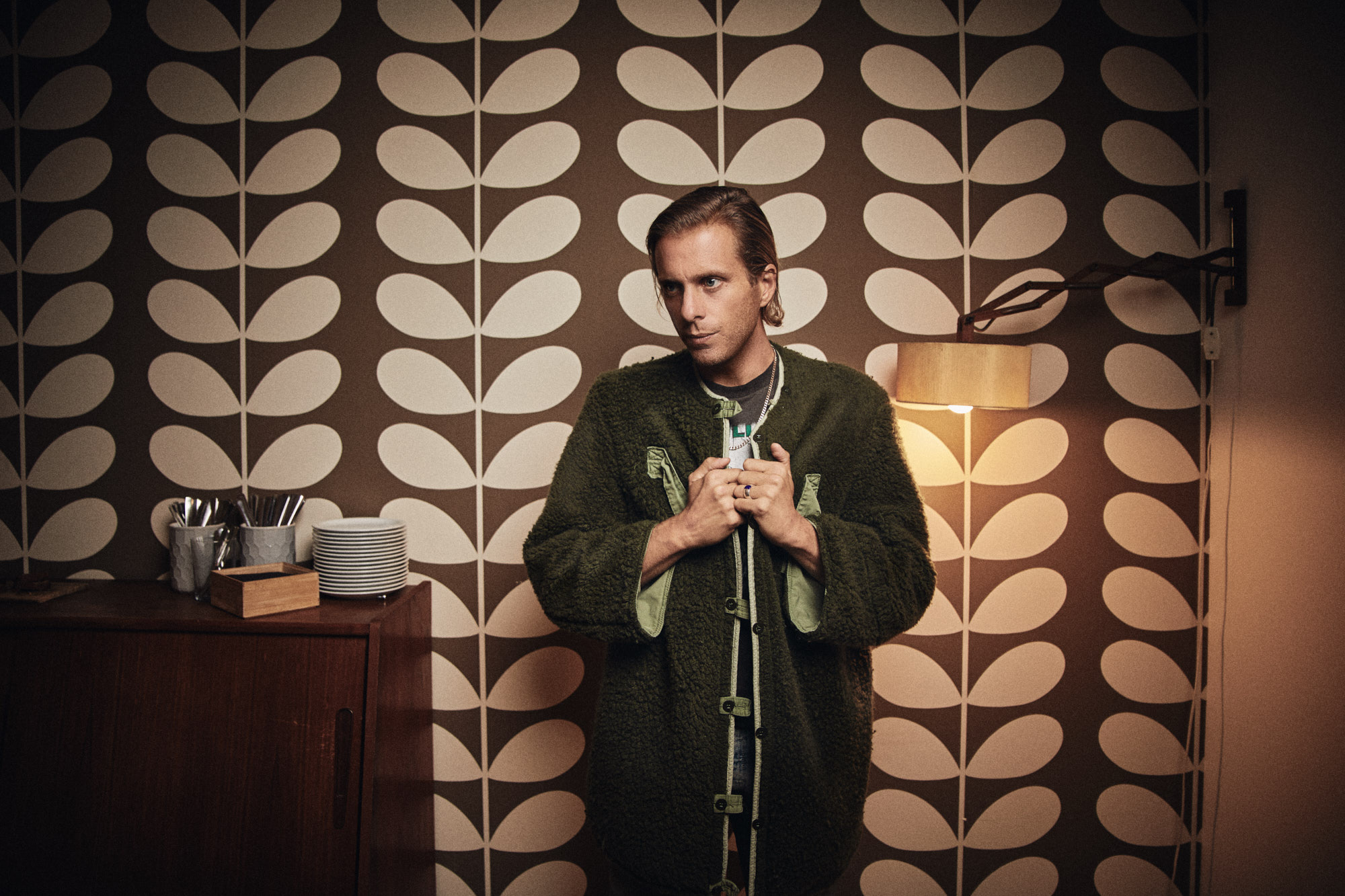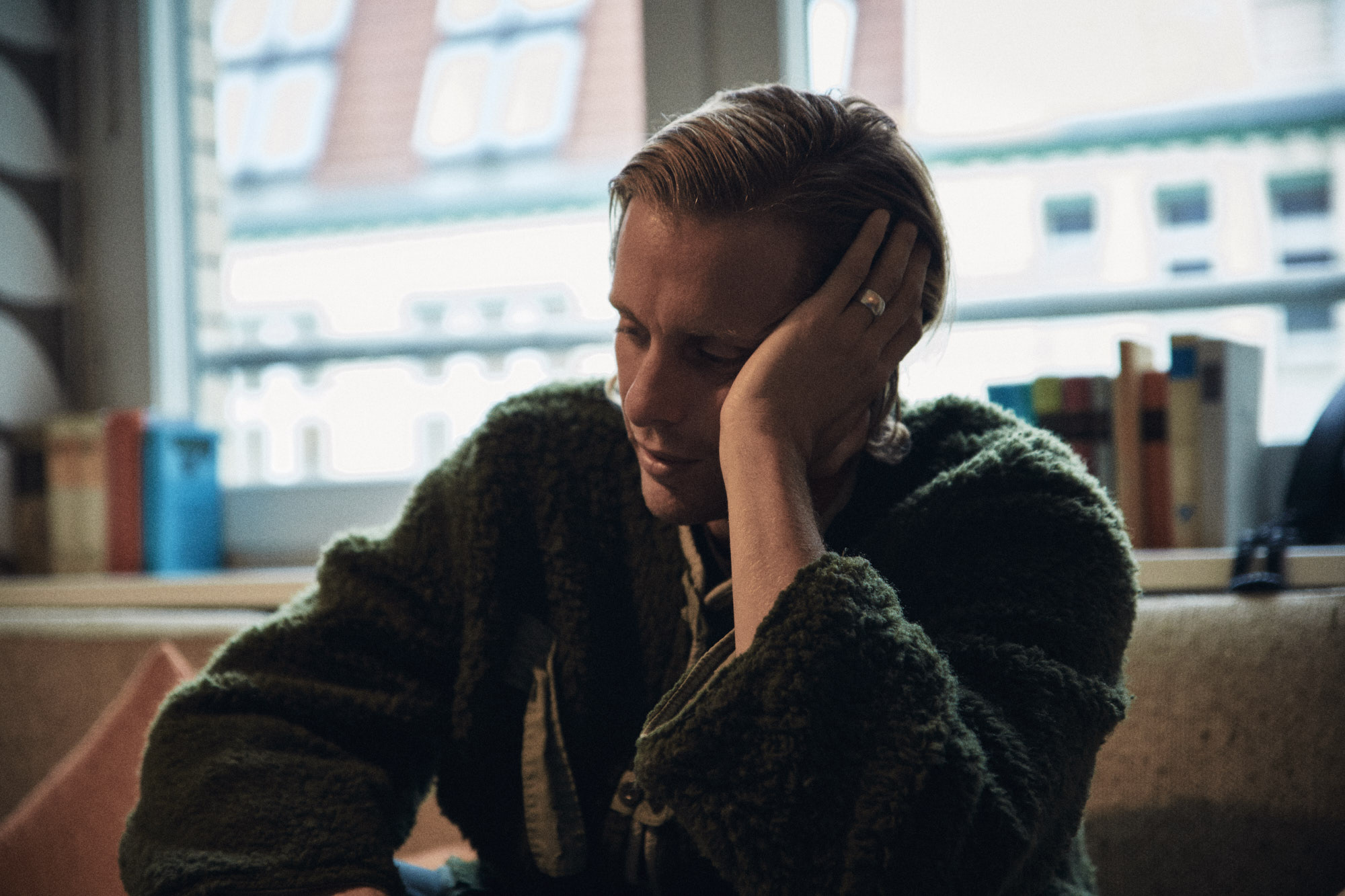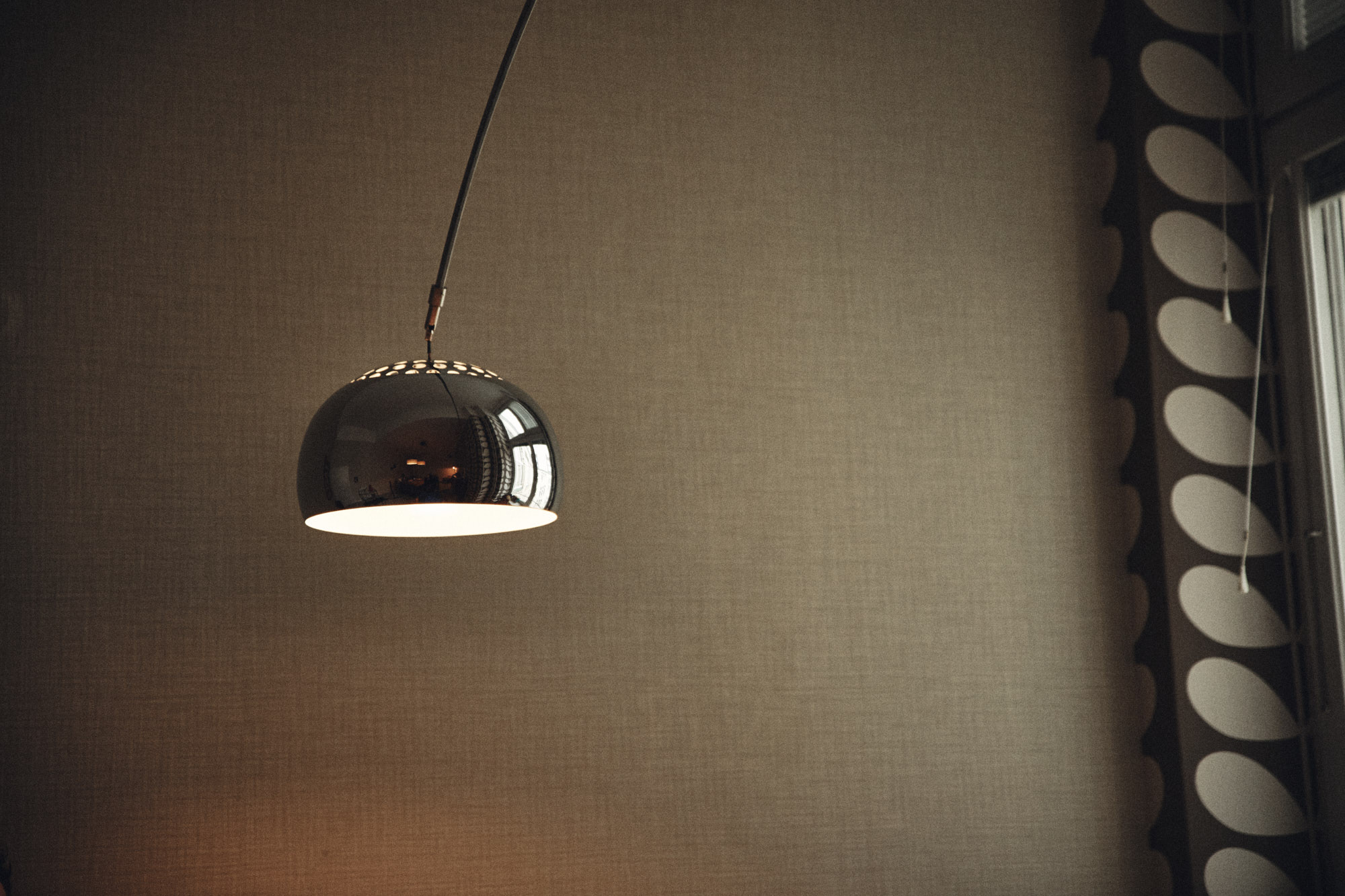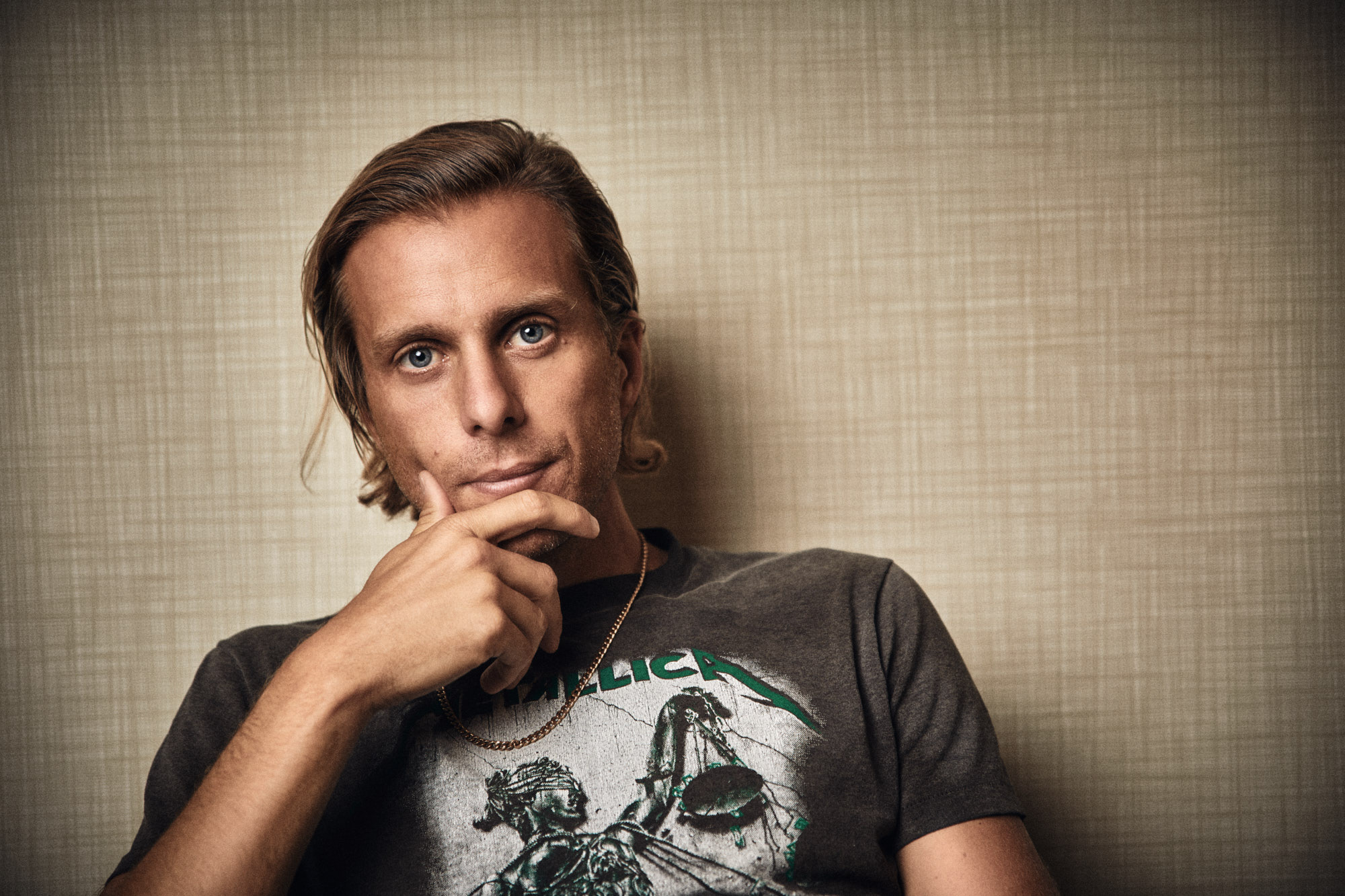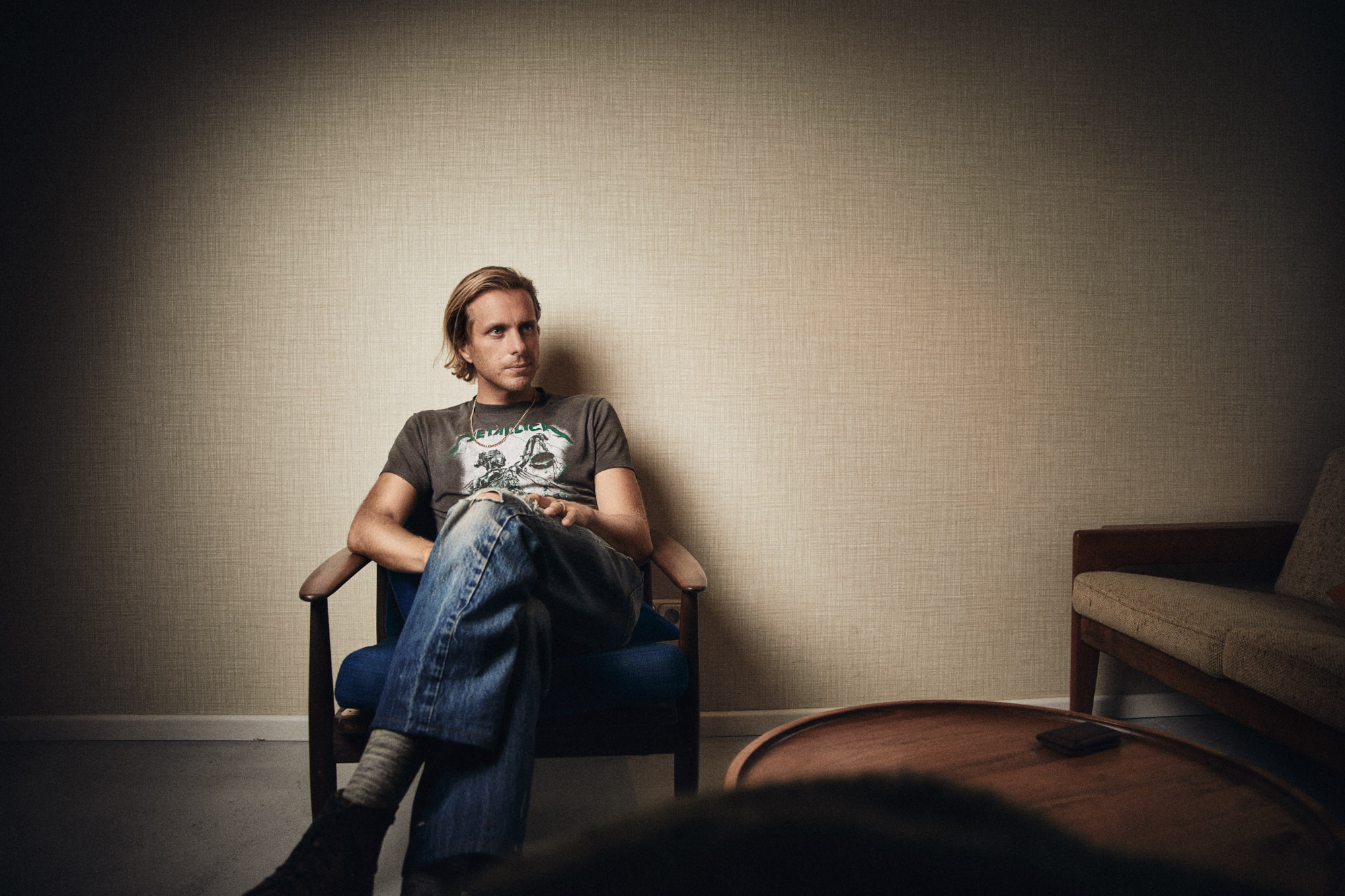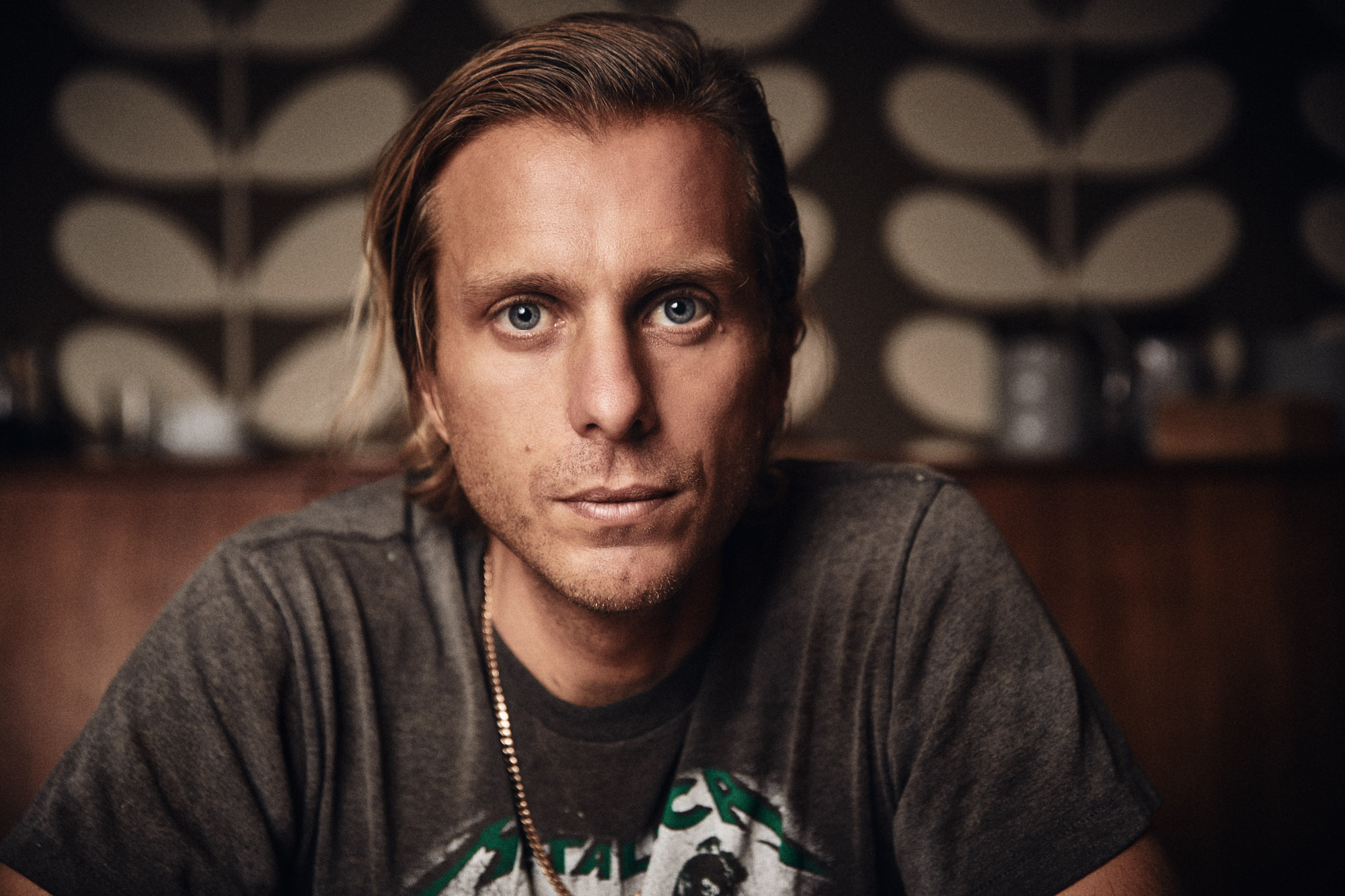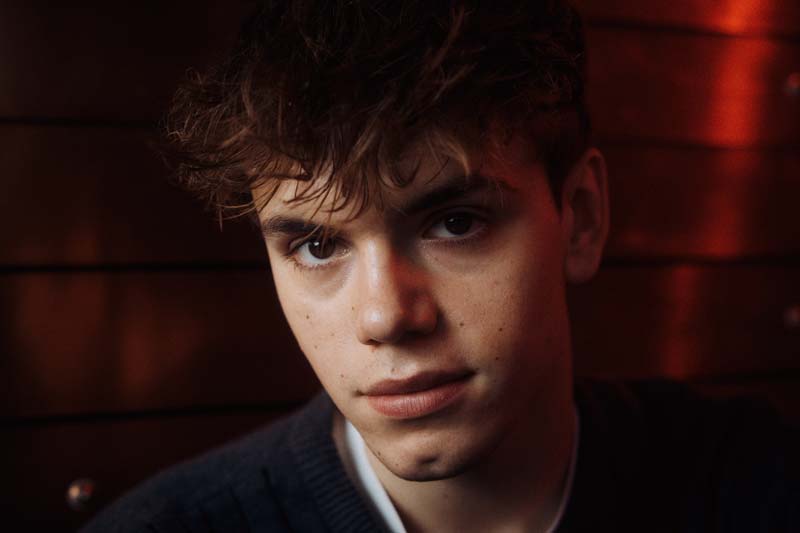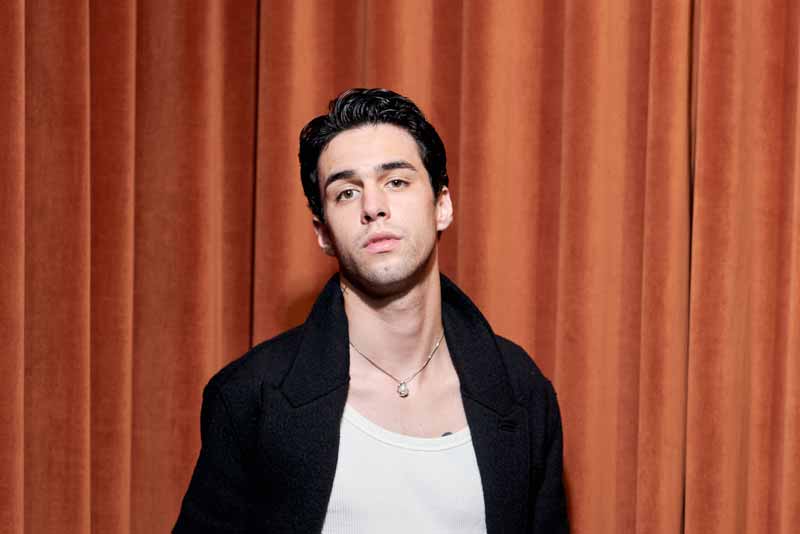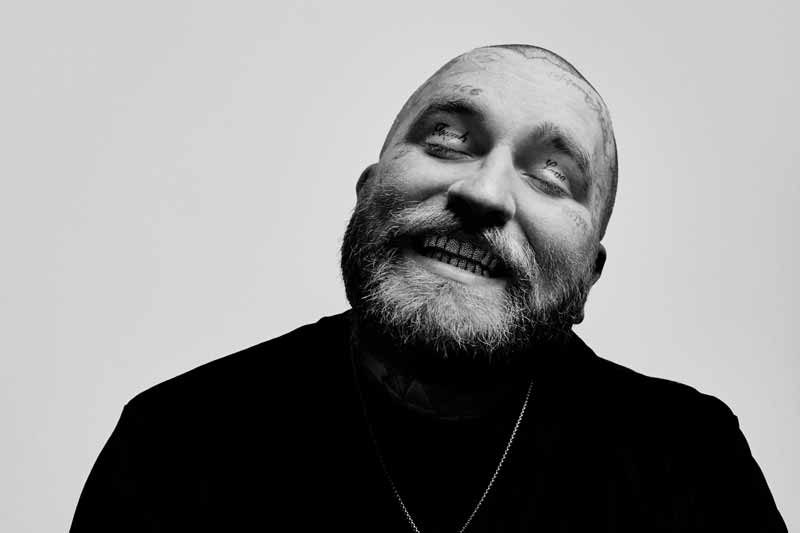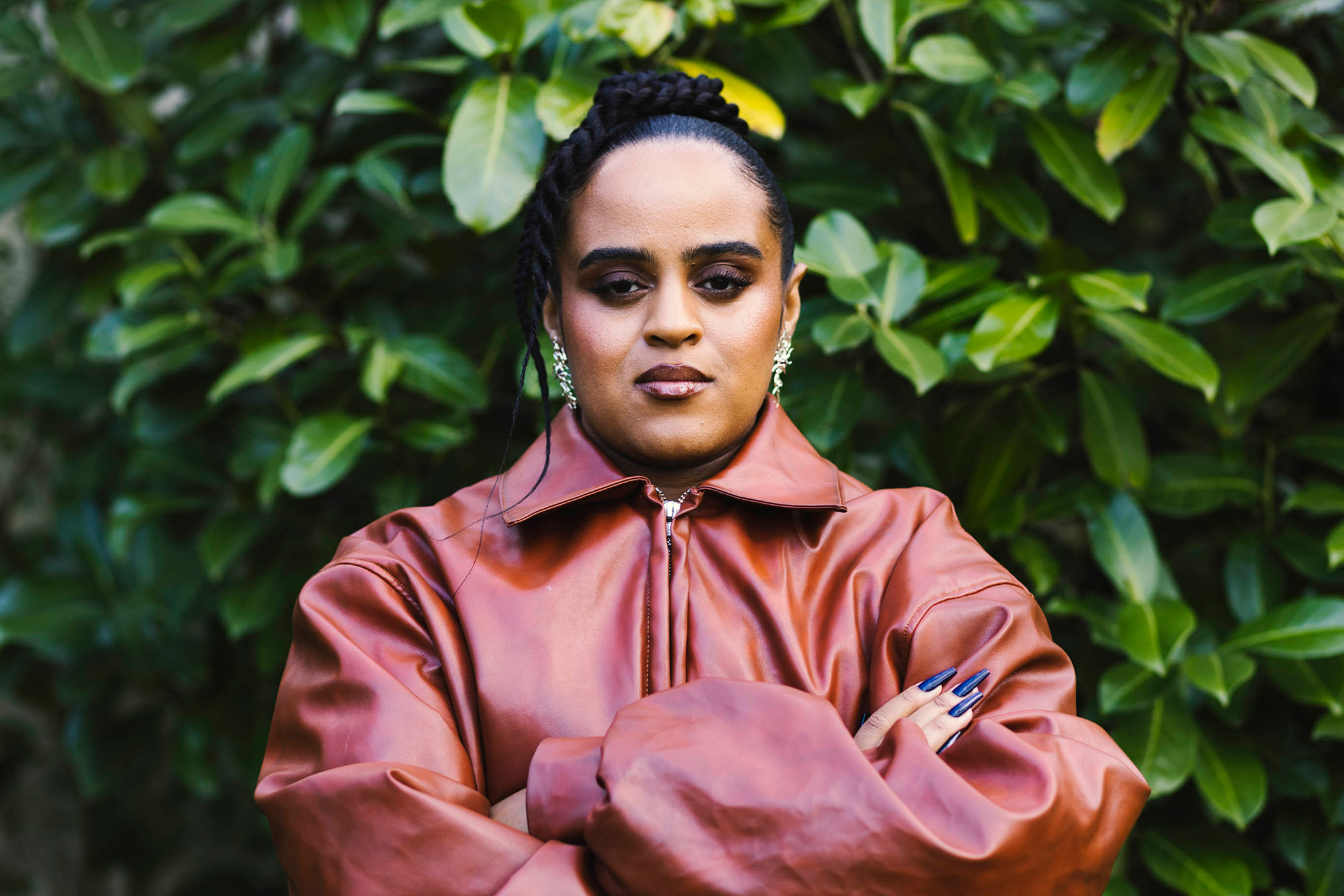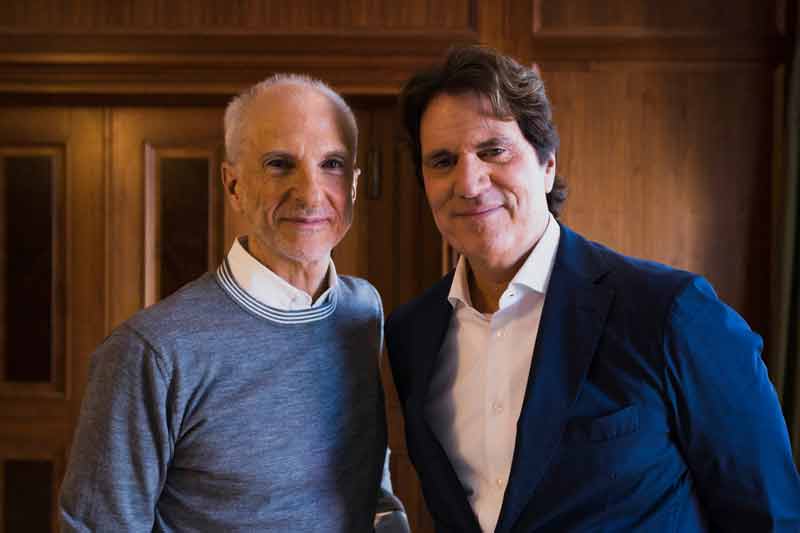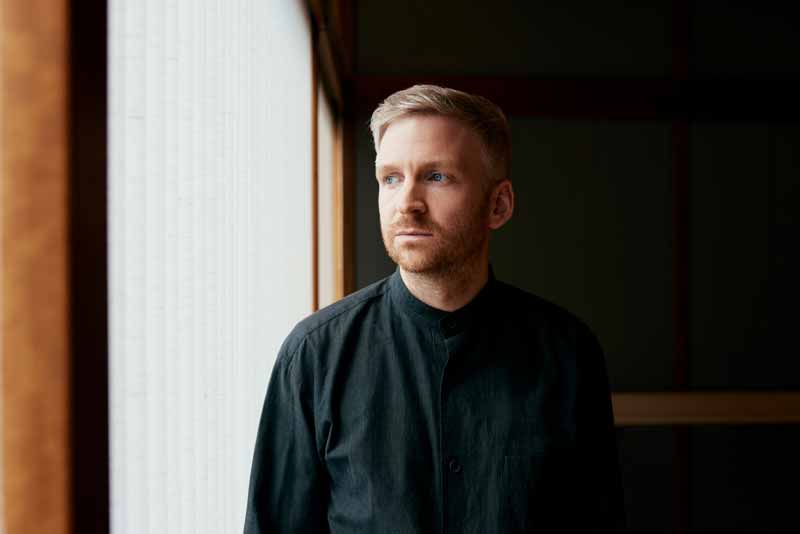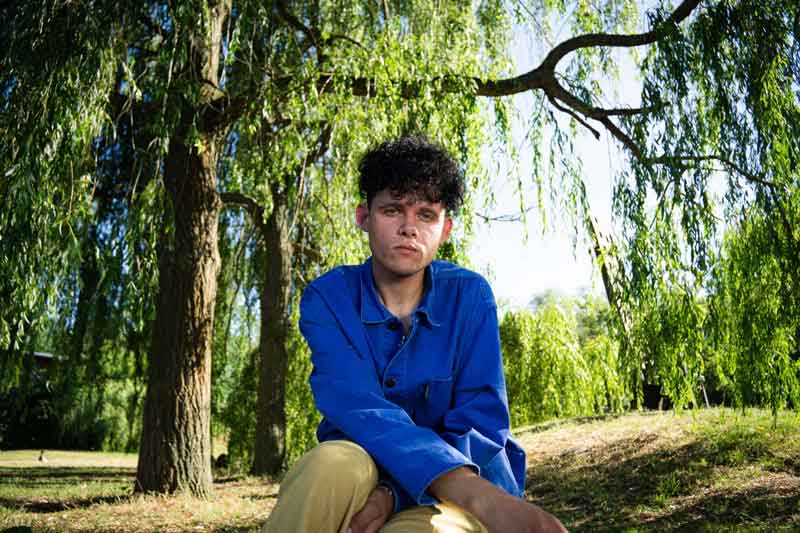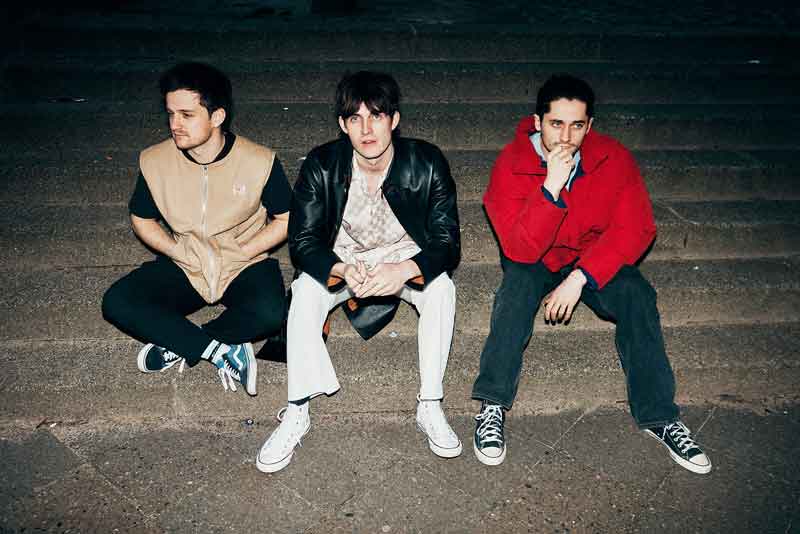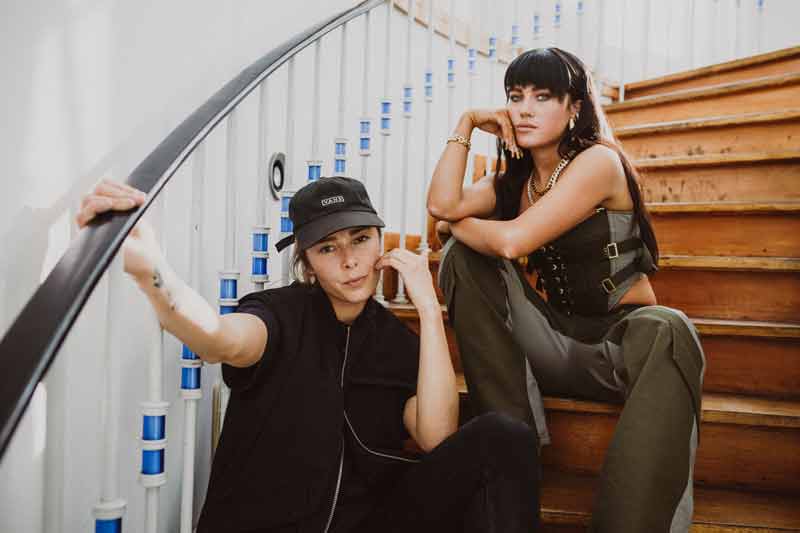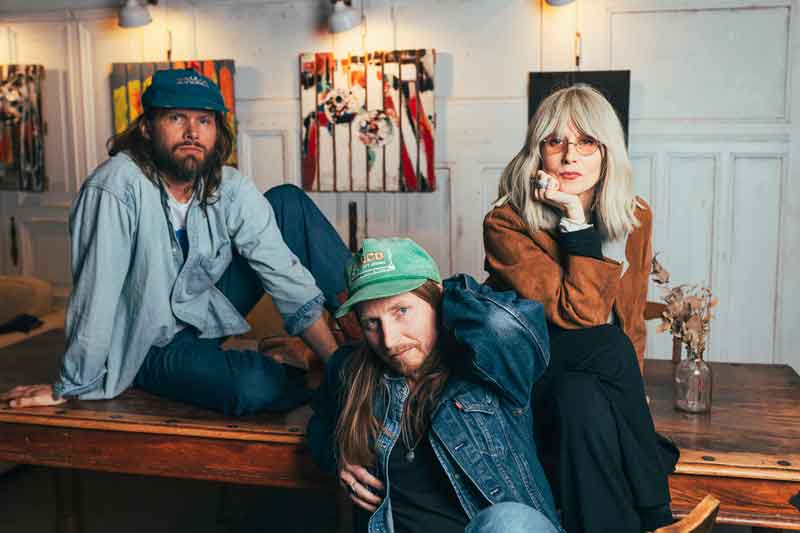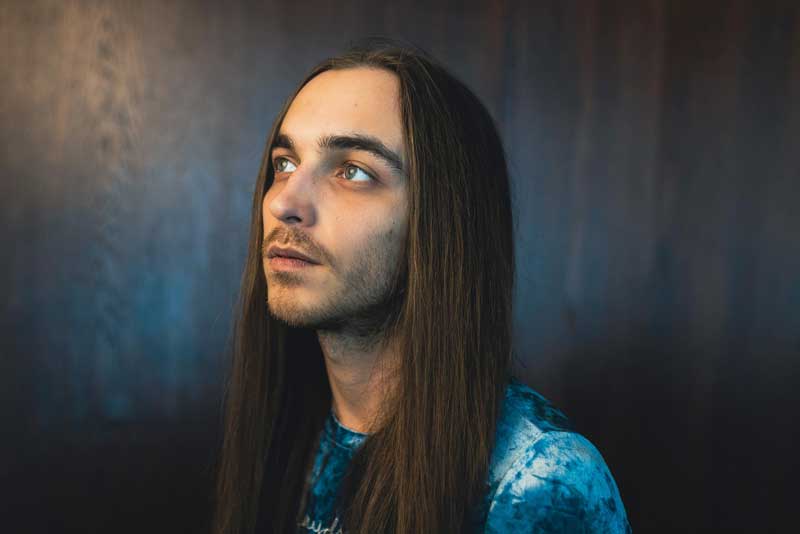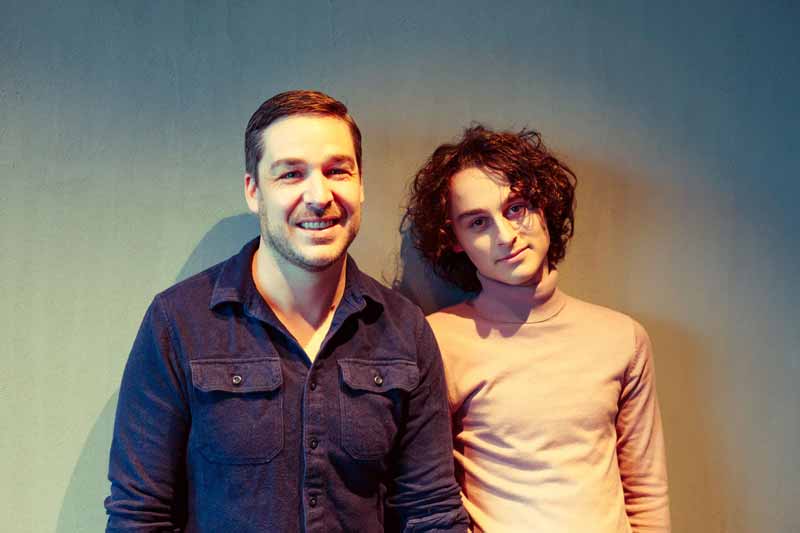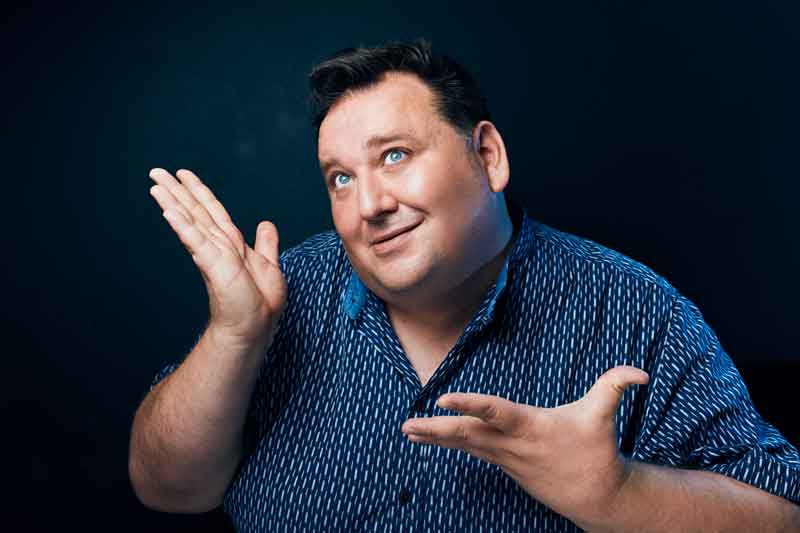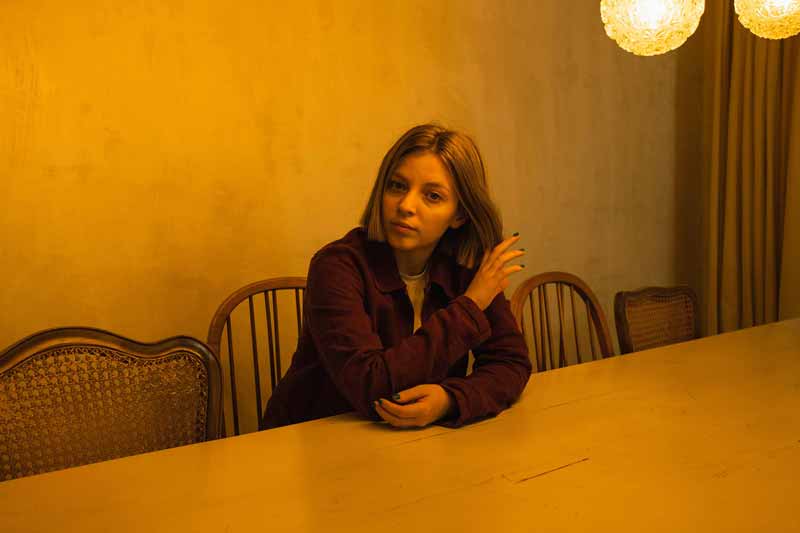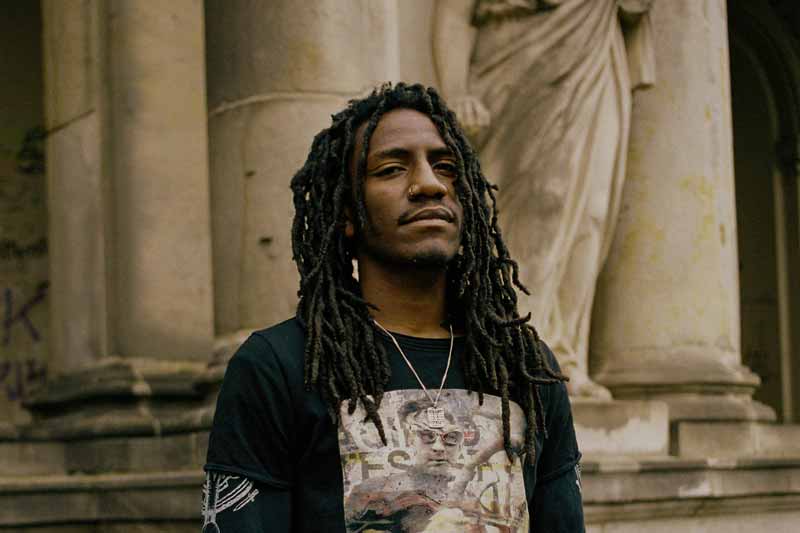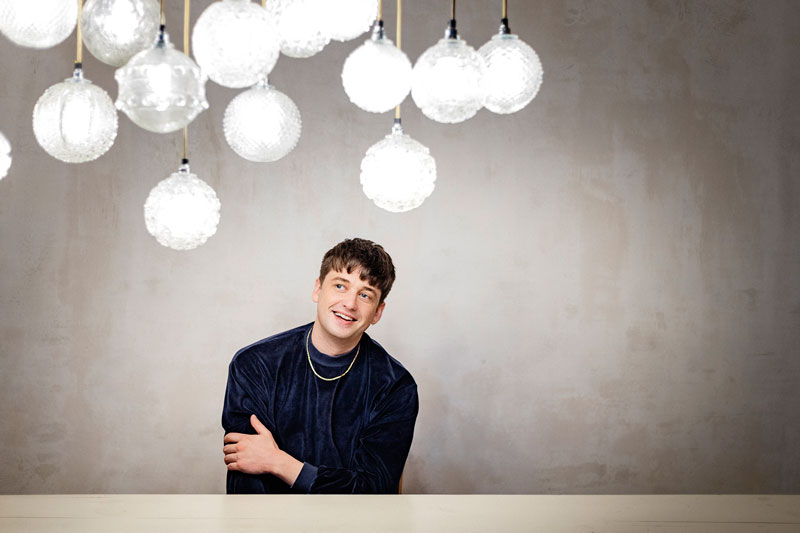Interview — Awolnation
Life Is Healthful
Awolnation’s frontman Aaron Bruno misses the optimistic music of the eighties and dislikes songs that sound like they were created by a robot. In our interview, he tells us why his new album “Here Come The Runts” comes from the bottom of his heart. And why disabled skater Og de Souza functions as the perfect ambassador for his new music video “Passion”.
22. Januar 2018 — MYP N° 22 »Resistance« — Interview & Text: Jonas Meyer, Photography: Steven Lüdtke
Recife. A Brazilian city with over a million inhabitants on the Atlantic coast. At a bus stop, a man arduously climbs up the steps into a bus. While holding on to the reeling with his right hand and hoisting his body up, his left-hand drags a skateboard behind him. The man’s lower body is disabled and his legs, which are unusable, are folded in front of him in a cross-legged position. The skateboard seems to be his only possibility of advancement. A wheelchair appears to be unaffordable for the man.
After a few stops, the man gets off of the bus. Sitting on his skateboard, he rides along Recife’s beach promenade for a while. A large grin appears on his face as he arrives at his destination: A skate park right by the beach. The man comes to a halt and posts up behind a wire fence. Sticking his hands through the holes of the fence, he watches the many young skateboarders zip back and forth. How sad it must be to only be able to watch other people skate.
But then the man decisively rolls towards the top of the halfpipe. He positions himself and goes for it. Full of energy, he skates through the course sending everyone else into wonder and awe. He skates as if it were a completely self-evident thing and as if nothing on this earth can hold him back. His facial expression is one of pure joy.
Said man is Brazilian skater Og De Souza. Of course, he can afford a wheelchair, but he consciously chose his favorite mean of transportation: a skateboard. And obviously, Og isn’t saddened by watching others skate. Because he skates at least as well as them.
Og’s story is told in one of the most recent music videos by Awolnation, a rock band from California. The videos’ title is “Passion”, which is also the title of the song. It is one of 14 tracks on the band’s new album, named “Here Come the Runts.” And, as lead singer Aaron Bruno assures us, the album comes straight from the bottom of his heart. Real music. No fake shit.
We meet Aaron in a small office in Berlin’s Michelberger Hotel. With its 60ies interior design, the location looks like it could be a part of a Mad Men set. It kind of reminds us of the Hamburg “Central Congress”… but more on that later.
Jonas:
A couple of weeks ago, you released the music video for your new song “Passion”. In this video, you tell the story of disabled Brazilian skater Og De Souza. I have to confess that I felt a little ashamed of myself when I watched the clip for the first time. Suddenly, all the day-to-day problems seem so tiny and so childish compared to this man’s fate—especially because he expresses so much dignity and happiness. How did you find this touching story?
Aaron:
My friend Ravi directed and documented a behind-the-scenes film of the making of my new record. He knew Og from a past shoot when he produced an old-school skate video. Ravi came up with the idea to tell Og’s story and get him on board for our video, so I’ve got to give him all the credit. We all kind of embraced this idea for “Passion” and I jumped at the opportunity to show someone’s passion and how it helped overcome such a drastic obstacle like not having the usage of your legs. And—I have to be honest—I feel the same way you do. When I saw Og De Souza for the first time, I felt silly for some of the things that I used to complain about. If I’m a bit sick one day or have a bunch of stuff to do that seems difficult, it feels kind of immature in comparison to what Og has gone through.
»It seems like a good positive way to try to navigate through life if you can figure out what it is that you’re passionate about.«
I don’t remember who exactly said it, but I’ve heard that to find your passion is to find your destiny. And that you find your purpose in life when you can figure out what your passion is. You know, for me it’s music. And for you maybe it’s journalism. But for someone else, it could be cooking, running, rock climbing, skiing, or whatever—the possibilities are endless. It seems like a good positive way to try to navigate through life if you can figure out what it is that you’re passionate about—so passionate that you would almost risk everything for it. That’s a good place to be. It helps you to get out of bed in the morning, it helps you feel like there’s a reason to be alive. So Og De Souza is a great example for that. He’s presented with the option of using a wheelchair with which, of course, nothing is wrong. But he decides to use a skateboard instead because he loves skating so much. I guess he really influences people in a very positive way. He’s got such a sweet smile, his face illuminates so much positive energy.
Jonas:
When you created the song “Passion”, what did it mean to you the first time? Is there a different meaning to it now that you’ve met Og De Souza and have shot the video? Do you see it through different eyes?
Aaron:
No, I don’t see it through different eyes. I just feel happy that there is someone that was willing to share their story, to help convey the message of the song. I am definitely inspired by him and I feel honored that he wanted to be a part of the video and subsequently of the song.
When I wrote the song, it was the third or fourth track that I wrote for the new record. My wife and I, we’re lucky enough to live in a pretty, mountainous area, there’s a lot of nature around our house. I remember that I was running through a trail at this area and—maybe it was the rhythms to which I was running—when the beat came to me, I suddenly had the idea of writing a song that I can say something very simple with, that helps me to nail it on the head and say: That’s passion! I mean, what is passion about? It’s discovering a formula for life, like a potion of passion.
Funny side story: I read a review of the last record, with which I disagreed a lot. It said that the record lacked passion and that broke my heart because I was extremely passionate about it! The last record was such an emotional experience, it really broke my heart to read that. So I said: Fuck them! Now I’m gonna write a song about passion—literally! The sarcastically making fun of that review was my way of lashing out, so the initial idea was kind of tongue-in-cheek. But then it became a serious thing.
Jonas:
What a situation: Someone sitting at their desk and accusing someone else out there that there’s a lack of passion.
Aaron:
You can say that you don’t like the song or that you don’t like the lyrics. I can always live with that. But “lack of passion”? It really did upset me and ended up being the initial idea behind the song—as silly as it sounds. It started as a joke, but then it became such a positive thing. I’m so grateful that it started there, it started with that negative review and became something much bigger. Now it obviously is a very positive message.
Jonas:
“Passion” is one of 14 songs on your new record “Here Come The Runts”. In an interview with Billboard magazine, you said that there’s absolutely “no fake shit” on this record. What does “fake shit” mean to you in a musical context?
Aaron (groans):
Oh, that’s a great example of something you said that you regret later. The record is from the bottom of my heart. I didn’t create the songs for success or to make money. These songs really come from the soul and mean a lot to me. It’s not about chasing some sort of trend or whatever. It’s more like: What you see is what you get. It’s a pretty rare, honest, emotional album.
»Almost all records are tuned. Auto-tuned. And that’s fake. What you’re hearing then is essentially a fake product and that doesn’t stick well with me.«
A lot of records you hear, there’s so much tuning of the vocals, it’s like listening to a robot. On my record, there’s none of that, and I’m really proud of that—which is funny to say because it seems like that should be the standard if you’re listening to an album. You just should be hearing the guy or girl sing and it should be their voice. But almost all records are tuned. Auto-tuned. And that’s fake. What you’re hearing then is essentially a fake product and that doesn’t stick well with me. Sure, there’s also a lot of artists that don’t tune their vocals. But most do. And that plagues me around.
Jonas:
Do you think pimping music with “fake shit” is like an epidemic in our modern music industry?
Aaron:
There’s always copycats. If there’s a song that performs well, labels are going to chase that and try to get a piece of the pie. For instance, it happened on our first record with “Sail”. Even still today I can list ten songs that sound exactly like “Sail”. I’m kind of proud of that, but at the same time, it’s also frustrating: It’s frustrating that some people try to influence pop culture like that, especially when they copy a song that wasn’t even supposed to be a pop song like ours.
Jonas:
Could it be that this kind of making music is just a reflection of how our society works?
Aaron:
I think technology has become so user-friendly that it has allowed us to become much lazier. And I’m as guilty of that just as anybody else is. Sometimes I notice that when my friends and I use the voice-activated system to send a text message, like “Hey, I’ll be there at 9. Karma!”, I’m just looking for the exclamation point to be set right. But when you really have to write something by yourself, you suddenly realize: Oh shit, I can barely spell anymore! You forget the mechanics of day-to-day life. I think the same goes for music: A lot of people cut corners. A lot of singers just record once and the guy or girl says: “Ok, that’s good enough. Let’s tune it, and it will be fine.” The more easy it has become to make songs like that, the more I feel like there’s a need for craftsmanship and real playing—for real musicianship. There’s a lot of musicianship on my new record and I think people will appreciate that.
Jonas:
“No fake shit” also means, for example, having the guts to cry out very honest words like “I don’t want you to leave”—like you do in the song “Table For One” on your new album. What’s the story behind this track?
Aaron:
When I went on tour in the past, I had to be alone a lot. There were a lot of times when I went to a restaurant and while sitting at the bar and attending a free table, I was waiting for my name to be called by the hostess who used to say: “Bruno, table for one!”
Jonas:
It’s like sitting in a movie theater as a single person. People would say: “Oh look, he’s alone!”
Aaron:
Actually, I think sitting in a movie theatre by yourself is kind of nice—talking to someone would just ruin the film. And sometimes you purposefully choose to be alone. On tour, for example, I quite enjoyed it. But if you are lonely and they call out “Table for one!” at a restaurant, that really pinpoints the feeling. I found that “Table for one!” call to somehow be unique and the phrase always stuck with me.
»I tried to express how sad it is when they have to go and when you suddenly are left alone, sitting at a table for one.«
When I started to write the lyrics for that track, it evolved into a simple love song. (—“Cause I don’t want you to leave / I want a day in your dreams”—) The song deals with the situation of a friend having to leave and you are just honestly saying: “Please don’t go! Don’t do it!” Funny enough, I felt that way about my guitar player Zach leaving to go on tour with his other band Irontom—he’s back now and he’s going to be touring with us!— but I kind of used this situation as a jumping-off point because we both had this crazy bond and I felt very emotional about it. We had spent all of this time together and he had played so much of the guitar while recording our new album. I said: “I don’t want you to leave!”
I also incorporated my feelings towards my wife into that song. I was a sort of combining my feelings towards Zach, who is one of my best friends, and those towards my wife and how I love them in different ways. I tried to express how sad it is when they have to go and when you suddenly are left alone, sitting at a table for one.
Jonas:
Another thing that I learned from the Billboard interview is that you grew up with the music of Dire Straits—which makes me very happy because I did too. My dad always had a Dire Straits tape in his car. What does the music of this band mean to you? Would you say they have had any influence on the way you make music?
Aaron:
I would say that especially the “Brothers In Arms” record is incredible—you have to be living in another dimension if you haven’t listened to that while growing up in the eighties. But it’s more recent that I’ve been obsessively listening to that album. I would probably refer more to Bruce Springsteen’s “Born In The USA”, for me this was the record of the eighties. But those albums go hand in hand. There’s this nice feeling of optimism and nostalgic energy, which I felt from both of them in the eighties.
»I wanted to make an album that felt more like hope than the doom and gloom scenarios that you’re confronted with whenever you turn on the TV or go online.«
A lot of the eighties’ pop or rock albums have that feeling, a lot of very good “car records” or “car songs” were created in that decade—not only by Dire Straits or Bruce Springsteen. There have been lots of others amazing music artists such as Prince, Michael Jackson, or Tom Petty. They had a lot of guitar play in their music, but it didn’t sound like rock ’n’ roll. It felt just like good music to me. Or maybe it was just my age—with all the feelings of wonder and optimism that ended up with being aware of how fucked up the world is. So I wanted to make an album that felt more like hope than the doom and gloom scenarios that you’re confronted with whenever you turn on the TV or go online. I rather wanted to focus on something positive. I wanted to say: Life is healthful. That’s what the “Born In The USA” and “Brothers In Arms” records did for me.
Jonas:
A couple of months ago we had a photo shoot in Hamburg at a very sophisticated sixties’ bar called “Central Congress”, founded by a guy named Oliver. That bar is extraordinary, like a set of “Mad Men”, and is equipped with furniture just like in this room. When Oliver moved to Hamburg, he couldn’t find a bar that would fit his lifestyle and satisfy his requirements, so he decided to build one on his own, based off of his ideas. Do you see yourself in that story? Would you say that you’re also a guy that creates the music he likes because he can’t find it anywhere else?
Aaron:
That’s how I approach most songs. I wanna make music that I wanna hear. I think there’s plenty of great artists out there right now—ok, when I say plenty, that’s not necessarily what I totally agree with, but I don’t want to think about it now. I love alt-J for example, they do amazing stuff. Or Tame Impala. And The War On Drugs are great too. But there’s not a huge amount of pop records that speak to me. Once I hear a song that feels pretty good, I wonder if the entire album is pretty good too. I want to listen to an album front to end. That gives me a rush and tells the whole story, it’s like going on a journey.
Today is really about singles and streaming and stuff, but that’s great too. I feel so lucky that—if you hit me with a song that I haven’t heard—I can go to my phone, just press play and listen to it immediately. That’s incredible. I remember specifically when LL Cool J’s “Mama Said Knock You Out” came out in the early nineties, they presented it first on “Yo! MTV Raps”, a couple of weeks before the single came to the stores. When I heard it for the first time, it was so great to me, I couldn’t wait until it came out. Unfortunately, it would only be like once a week that they played it on MTV. So I had to wait all week and count down to when I could see it again. And when they finally played it, I was so excited to watch it and I recorded it on videotape, so I could watch it over and over again. Hard to imagine today, right?
Jonas:
I was born in the early eighties, so I remember these times very well. A couple of minutes ago, you told me that you created your new record mostly at home which is located in the Malibu area in California. This area is pretty magical and characterized by wonderful sceneries like Point Dume Beach or by the luxurious situation of having frozen yogurt spots everywhere. What impact did this “Californianess” have on your new record? Do you actually feel this Californian magic as someone that was born and raised there?
Aaron:
I know that most people’s idea of Malibu is like Baywatch, beaches and bikinis. But there’s another part of California that is often overlooked: There’s a lot of nature and a lot of mountainous areas, so there’s a lot of exploration you can do. That part of California is far away from L.A., far away from the busy city. You can find it when you’re continuously heading north on the Pacific Coast Highway and Highway 101. That part of California with its incredibly rich nature and its aspect of canyon lifestyle is the main influence of my new record. That’s the best part for living in California—and not the part that is always presented on TV.
